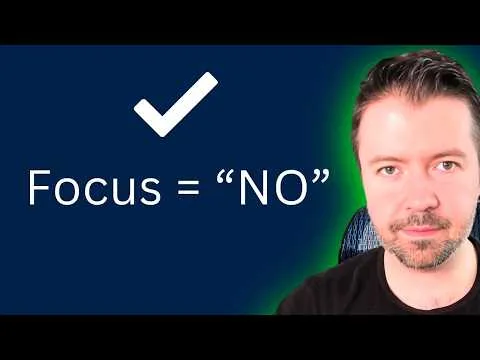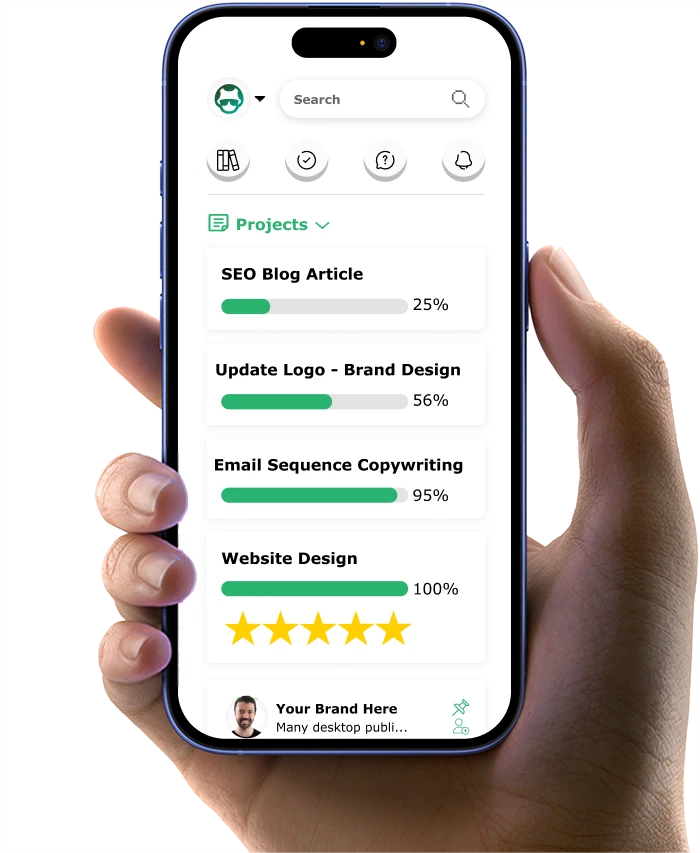How To Make It Impossible To NOT Achieve Your Goals

Most of us have set bold goals—whether it’s doubling revenue or launching a new product—only to find ourselves stuck on the hamster wheel, working harder but not necessarily getting results.
I remember the first time my team and I set an ambitious target for monthly recurring revenue.
We poured our energy into chasing the number, but real progress didn’t come until we shifted our focus from the (end) goal itself to creating the systems and habits that would get us there.
In this article / video, I’ll show you a proven approach to achieving your business goals with less stress, faster results, and more clarity. This is the same approach I’m using currently in our current “Scaling to $1MM Profit Per Month” challenge.
Here’s what you can expect:
- We’ll explore the (seemingly paradoxical but practical) statement that your goal isn’t (and should not be) the real goal
- How to identify the actions that make success inevitable, and
- How to build personal and internal company systems that support sustained growth.
Let’s dive in...
Want to get all your marketing and funnel work done—without the headaches of hiring a team? Download our free guide: 33 Marketing Projects You Can Delegate to Growbo and discover how to save 100+ hours a month, grow faster, and scale without the overhead.
Part 1: The Goal Is Not the Goal
Goals are everywhere. We're told to set them, visualize them, and chase them relentlessly. But here's the truth: the goal is not the goal. Goals are just targets to aim at, not destinations.
If your goal is to lose weight, for example, you're essentially failing every day until you hit that number on the scale. You can't work out for a day and suddenly hit your weight goal—unless your goal is to lose three pounds or something trivial.
The psychology of goals is uncomfortable because you're constantly measuring yourself against something that's out of reach right now. Your mind craves that dopamine hit, but it doesn't come until you "arrive."
This is why you need to make the work—the daily grind, the system itself—your real goal. When you do this, you'll feel fulfilled and rewarded every day. Your energy will feel limitless.
You'll outwork your competitors and see compounding results faster than you ever expected. The mountaintop goal—whether that's $1 million in revenue, $10K MRR, or something else—should serve as your North Star, but the journey is what matters.
The journey becomes the destination.
I remember the day I looked at my phone and saw that my company hit $1 million in revenue for the first time. I’d been working toward that goal for years. It felt great, but the feeling didn’t last. After a day or two, it was back to normal. The only permanent thing is the choice you make each day: What will you spend your time on? Are you enjoying the work, or are you dreading it?
So, the real immediate goal is to build a system—a set of habits and routines that, if followed, will almost inevitably lead you to your target. The system is the goal.
2 - The Ultimate Question
There’s one question you need to ask yourself at the start of this process, and then repeatedly throughout:
What actions would you need to take such that it would be unreasonable for you to not achieve your goal?
This question is powerful, especially when you feel lost or overwhelmed. Imagine waking up in a forest—you don’t know how you got there, but you know you need to get back to civilization. The only way out is to start walking. Eventually, you’ll find a stream, then a river, then a bridge, then a road, and finally, you’ll make it back to town. The point is: just start moving.
When answering this question, don’t just list what you could do. List what you’ve been avoiding. What has worked in the past, even if it feels unscalable? What does your company need you to do right now to get to the next level? Often, these are the hard, uncomfortable tasks—the ones you’ve been putting off.
This principle finds support in workplace psychology research, where studies show that employees who focus on seeking challenges—the daily work itself—rather than fixating on end outcomes actually achieve better performance as shown in the diagram below.

I learned from a mentor, Keith McGovern, Cornell's Entrepreneur of the Year and a successful investor, that the guaranteed way to become reliably successful in business is to simply be willing to do what other people are not. If it’s hard for you, it’s hard for everyone else. The further down the funnel you go, the fewer competitors you’ll have. That’s where success lives.
3 - The Answer—Execution and Focus
So, you’ve asked the question and identified the actions. Now comes the answer: execution.
The goal is not the goal—the system is the goal. Make the work itself your reward. When you love the work, or at least find a way to enjoy it, you’ll have limitless energy. Structure your day around high-leverage tasks first. For me, that’s waking up and writing at least 330 quality words every day. After that, I record a video.
These are my highest leverage activities, and they move the needle.
Your brain’s reward centers aren’t rational. If a task feels draining, pair it with something you enjoy. After a tough task, do something easier or more fun. For example, after writing and recording, I spend 15 minutes writing fiction, which is a separate goal and system, but it keeps me energized.
It’s also important to set hierarchical goals. Have a big, hairy, audacious goal (the mountaintop), but also set smaller milestones along the way. Celebrate those wins—they give you the dopamine boost you need to keep going.
In fact, research shows that dopamine neurons respond most strongly to unexpected rewards and predictive cues about future rewards, which explains why celebrating small wins creates the neurochemical momentum needed for sustained effort.

And remember: focus. Every time my business has grown like gangbusters, it’s because I was focused. That means saying no to everything that doesn’t align with your system. Steve Jobs once said, “Focus is about saying no.” Innovation is saying no to a thousand things.
4 - Slow Down to Speed Up
To do great work, you need to slow down and think. Your mind needs to be clear and rested. Cardio and meditation help. But most importantly, you need to disconnect from the constant barrage of notifications, social media, and FOMO. These are drugs, and they sap your ability to focus.
According to the University of California San Francisco (UCSF), those who practiced mindfulness for just five minutes per day showed significantly greater reductions in stress compared to those who practiced less. The study revealed that mindfulness practice led to decreased job strain and burnout while increasing work engagement—exactly the mental clarity needed for high-level work.

There’s a concept in Buddhism called the “subtle body.” Imagine a bird inside your chest, flapping its wings. In American culture, that bird is like a hummingbird—always moving, never resting. But to do high-quality work, you need to slow down, breathe, and lay one brick at a time.
In American culture, we’re so “ADD” and addicted to stimulation and phones (and same for many other western countries). But there’s great power and benefit to your business in slowing down… which lets you FOCUS.
Will Smith once shared a story about his father teaching him to build a wall. The lesson was simple: lay one brick perfectly at a time. Eventually, you’ll have a beautiful wall. In business, it’s the same. Lay one brick—one task, one system—at a time, and you’ll build something great.
Conclusion
To recap: the goal is not the goal. The system is the goal. Ask yourself, “What actions would I need to take such that it would be unreasonable for me not to achieve my goal?” Then, execute on those actions with relentless focus. Say no to distractions. Slow down, think, and lay one brick at a time.
If you’re a business owner and want to delegate the work that’s holding you back, check out Growbo. We provide an all-in-one, on-demand marketing fulfillment team at a fraction of the cost of hiring freelancers or building an in-house team. Delegate unlimited marketing tasks—web design, copywriting, content, ads, and more—and get them done for you, so you can focus on what matters most.
Keep growing, and stay focused.
Image Credits:
1. https://www.mdpi.com/2071-1050/11/2/422
3. https://pmc.ncbi.nlm.nih.gov/articles/PMC3032992/
4. https://organizations.headspace.com/blog/headspace-x-ucsf-digital-meditation-to-target-employee-stress














